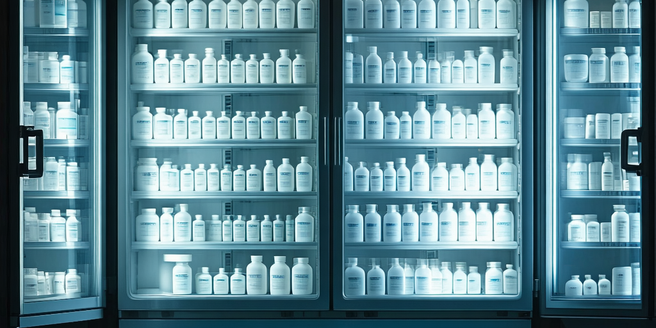
Understanding the Impact of Heatwaves on Medication
Heatwaves can significantly impact the effectiveness and safety of medications. Higher temperatures may alter the chemical composition of drugs, potentially reducing their efficacy or increasing the risk of side effects. Medications stored in environments that exceed room temperature may become less potent or even harmful. It’s crucial for patients to be aware of how temperature fluctuations could influence their medication’s reliability. For instance, individuals using temperature-sensitive drugs like insulin need to be particularly vigilant, as excessive heat can degrade the product. In severe cases, this degradation could jeopardize their health. Understanding these impacts helps in planning better medication storage methods and ensuring continuous effectiveness.
Common Medications Affected by Heat
Certain medications are more susceptible to temperature changes, thus requiring careful consideration during heatwaves. These include insulin, thyroid hormones, and nitroglycerin. Heat can degrade insulin, reducing its ability to control blood sugar levels effectively. Thyroid hormones may also lose their potency in high temperatures, leading to inconsistent therapeutic outcomes. Nitroglycerin, commonly used for heart conditions, can become less effective if exposed to heat, risking inadequate angina management. It’s important for patients to use effective storage solutions to maintain medication stability. Being aware of which medications are most vulnerable assists in preventing adverse health impacts during heatwaves.
Guidelines for Safe Medication Storage in Heat
Proper medication storage, especially during heatwaves, is essential for maintaining drug efficacy. Ideally, medications should be stored at controlled room temperatures, away from direct sunlight and moisture. Use insulated cool bags or portable coolers for transportation to keep medications cool. Ensure correct storage guidelines are followed for each medication. Certain medications may require refrigeration but avoid freezing as it might be equally damaging. Consider using automated alerts to remember checking storage conditions regularly. By carefully managing storage conditions, patients can mitigate the risk of medication degradation during extreme heat periods, ensuring the safety and effectiveness of their treatments.
Recognizing Signs of Medication Ineffectiveness
During heatwaves, recognizing signs of decreased medication effectiveness is crucial. Symptoms indicating ineffectiveness may include return or worsening of condition symptoms, unexpected side effects, or a noticeably different appearance of the medication itself. It’s important to store medications in a cool and dry place to preserve their effectiveness. For instance, insulin that no longer controls blood sugar levels effectively, or tablets that appear discolored or unusually soft, may indicate reduced potency from heat exposure. Users should be vigilant about such changes and contact their healthcare provider for advice. Early detection and response can prevent adverse health outcomes and maintain treatment efficiency.
Stay Hydrated: Balancing Fluids While on Medication
Managing hydration is critical during heatwaves, especially for individuals on medication. Some medications, like diuretics or those for kidney conditions, affect fluid balance, making it imperative to monitor water intake. As temperatures rise, the body’s demand for water increases, emphasizing the need for vigilant hydration practices. Inadequate hydration can lead to adverse effects, such as increased medication concentration in the bloodstream, potentially intensifying side effects. Conversely, overhydration can dilute the effects of medications. Those on strict fluid balance regimens should work with healthcare providers to adjust their intake appropriately. Maintaining proper hydration supports overall health and enhances the effectiveness of medications, particularly during hot weather.
Consulting Healthcare Providers During Heatwaves
Seeking healthcare advice during heatwaves is pivotal for safe medication management. Providers can offer personalized guidance regarding medication adjustments, symptom monitoring, and storage recommendations. Patients should proactively discuss any concerns about the stability and efficacy of their medications in high temperatures. It’s crucial to understand how certain medications might interact with heat exposure. Healthcare providers can also provide emergency plans for medication management during prolonged heatwaves. Maintaining open communication ensures that any necessary changes or precautions are taken promptly, safeguarding patient health. Engaging with healthcare professionals helps manage the complexities introduced by heatwaves, ensuring ongoing treatment efficacy.
